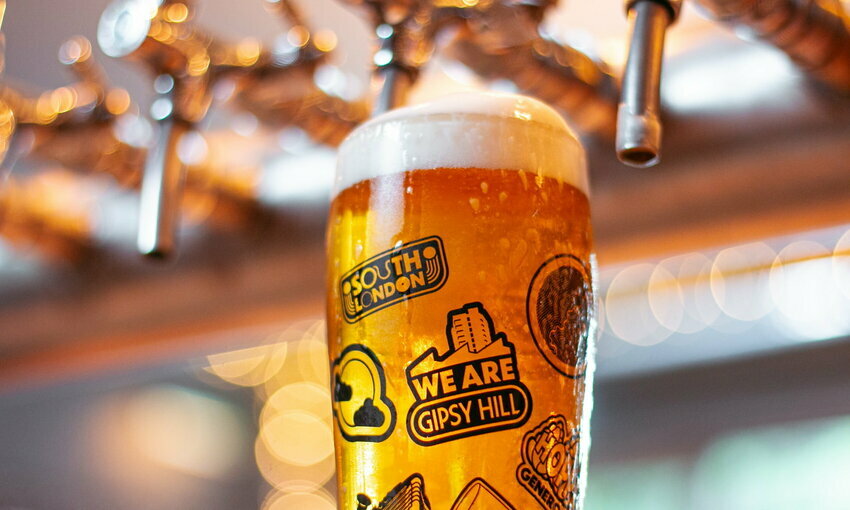 (Credit: Gipsy Hill)
(Credit: Gipsy Hill)South London brewery, Gipsy Hill, has released what it calls the world’s first offset-free carbon negative beer, which removes more greenhouse gasses from the atmosphere than it produces.
The brewery is able to achieve a carbon-negative lager and pale ale by using certified regenerative barley from Wildfarmed. Regenerative farming uses intercropping, cover cropping, and reduced tillage to improve soil health, reduce erosion, and sequester carbon. These practices allow barley farming to sequester more carbon in the soil than it releases into the atmosphere.
The second step of creating the carbon-negative beer uses recaptured hops from a previous batch of beer in the flavoring process. Since hops are usually thrown away after use, this process results in net zero greenhouse gas emissions.
This brewing practice results in creating -40gCO2 "Swell Lager" and -30gCO2 "Trail Pale Ale" pints.
The brewery emphasized that these are the first carbon negative beers that reduce carbon in the brewing process rather than using carbon offsets. Carbon offsets reduce the carbon footprint of a company’s products through activities that don’t involve their own production, like forest restoration or renewable energy investments.
The entire carbon lifecycle of both carbon-negative beers has been analyzed by carbon accounting firm, Zevero.
Gipsy Hill is one of many brewing companies working to reduce the negative environmental impact from the beer industry. Recently, New Belgium announced that their most famous beer, Fat Tire, is now carbon neutral, and they are now a certified zero-waste brewery.
Brewing companies are concerned over the impact of extreme weather events on their product as crop yields become increasingly susceptible. While carbon offsetting efforts are used to by companies to combat the negative effects of climate change, offset programs forgo addressing the issue at its source. Recent controversies over carbon offset programs and reporting have also emphasized its lack of transparency and measurability.
In the United States, agriculture accounts for 11% of the country’s total carbon emissions, so changes must be made to the industry beyond just carbon offsetting in order to reduce this impact. Gipsy Hill’s focus on regenerative farming highlights the need for changes in agricultural practices in the industry and beyond, showing the sector’s potential to reduce its massive carbon footprint.
“Making great quality beer has been our obsession for 10 years, but I felt we had to find a way to do it more sustainably,” said Sam McMeeken, co-founder of Gipsy Hill Brewery. “Great beer should be guilt-free, and our new Trail Pale and Swell Lager mean that for the first time, our drinkers can enjoy a pint safe in the knowledge it’s actively improving the environment and helping solve our climate crisis. By truly embedding sustainability into our brewing process, rather than simply offsetting emissions, we have created a blueprint for sustainable beer range, but the wider food and drink industry.”